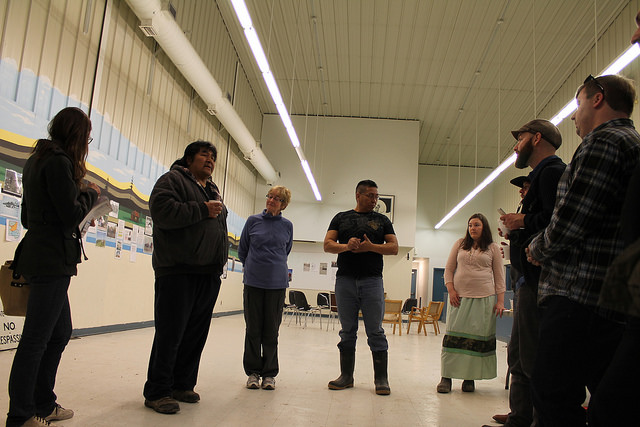Chip in to keep stories like these coming.
On October 5, Liberal leader Justin Trudeau stated, “We have 93 different communities under 133 different boil water advisories across the country. [Serpent River First Nation] Chief Isadore Day has called for within five years there should be zero, and I’ve told the Chief and I’ve told First Nations many times, we agree with that, and a Canadian government led by me will address this as a top priority because it’s not right in a country like Canada that this has gone on for far too long.”
The month before, Council of Canadians water campaigner Emma Lui wrote, “Heading into September, there were approximately 160 Drinking Water Advisories in effect in 116 First Nations communities across Canada, including British Columbia. Some of these communities have been under drinking water advisory for 5, 10 or even nearing 20 years.”
Why the discrepancy between Trudeau noting 93 communities and Lui stating 116?
APTN reports that by focusing on Health Canada’s drinking water advisory list, “Trudeau excluded, in one fell swoop, the 25 First Nations in B.C. that are currently under drinking water advisories. Health Canada stopped reporting water advisories for First Nations in B.C. back in 2013. Those numbers are now reported by the First Nations Health Authority in the province.” That said, the day after Trudeau made the pledge, the Liberal party clarified with a statement, “The use of that particular stat was meant to highlight the scope of the problem. Rest assured, our commitment is to all First Nations communities across Canada struggling with issues surrounding clean drinking water.”
There are also concerns about how the Trudeau government will pay to make their promise a reality.
In July 2011, a “National Assessment of First Nations Water and Wastewater Systems” conducted by Aboriginal Affairs and Northern Development Canada estimated that it would cost $4.7 billion over a ten year period to meet the department’s protocols for water and wastewater services for First Nations communities. That included an immediate $1.2 billion to deal with high-risk systems. The Council of Canadians has been highlighting that $4.7 billion demand in the water chapter of the Alternative Federal Budget for the past several years.
While Trudeau made no specific budget pledge for First Nations water and wastewater in the Liberal platform, his five-year deadline is clear and undeniable.
And it could be one of the key reasons Indigenous voters appear to have backed him in the Oct. 19 federal election. The Guardian reports, “Two thirds of all indigenous water in Canada has been under an arcane ‘boil water advisory’ at some point since 2004, with 400 out of 618 First Nations communities without a secure supply of drinking water.” It highlights, “Comprising roughly 1.4 million people, the First Nations tilted the vote in favour of the youthful Trudeau, who declared that he sought to ‘renew the nation-to-nation’ conversation between Aboriginal Canada and the rest of its peoples.”
Trudeau has an international commitment to meet too.
On July 28, 2010, the United Nations General Assembly recognized the human right to water and sanitation. Regrettably, Canada under the Harper government abstained from that historic vote. Five years later, the UN human rights committee, in its report on Canada’s compliance with the International Covenant on Political and Civil Rights, commented, “[Canada] should, in consultation with indigenous people, (a) implement and reinforce its existing programmes and policies to supply basic needs to indigenous peoples…” Canada will have to report on this to the UN by July 24, 2020.
And while it may be too soon to speak of, Indigenous voters and all Canadians will also have the opportunity to make their judgment on Trudeau’s record of fulfilling his promise at the time of the next federal election, which given the fixed date election law in Canada is scheduled for October 21, 2019.
For more on the Council of Canadians campaign in support of “Safe Water for First Nations,” please click here.
Chip in to keep stories like these coming.



